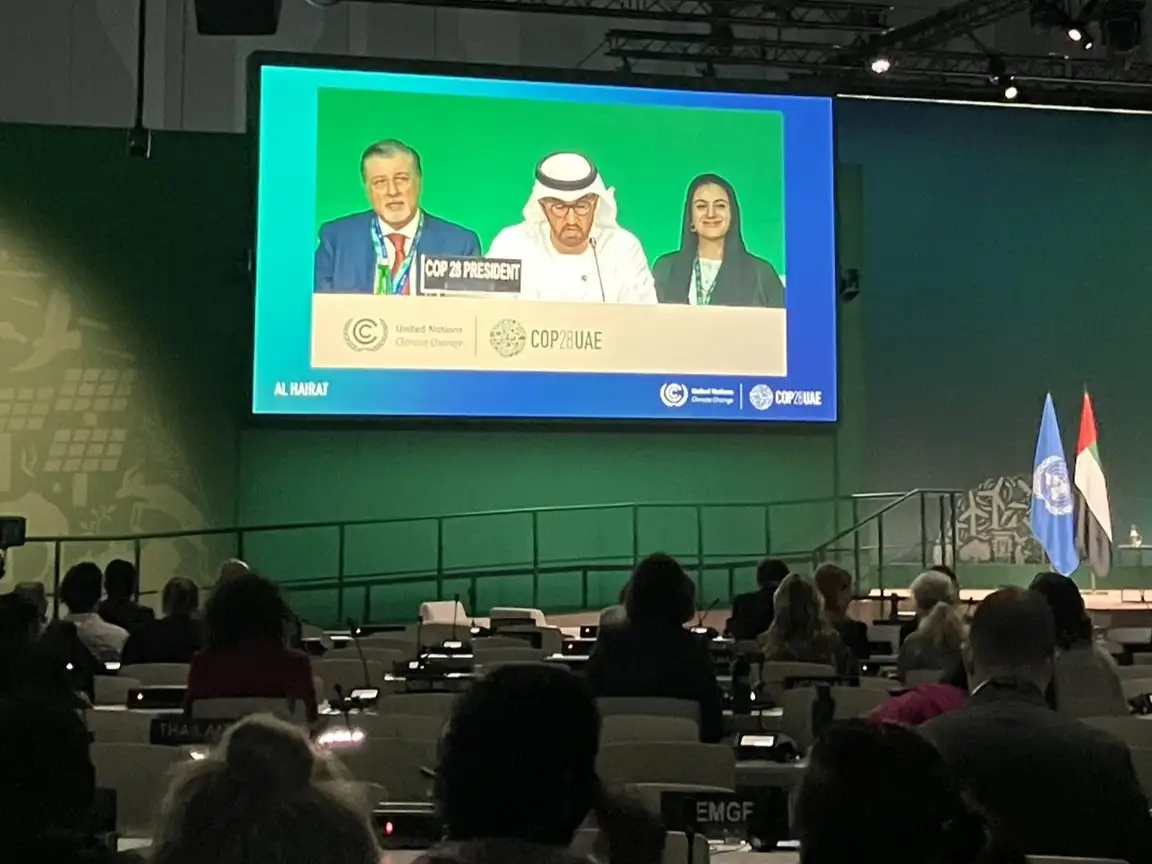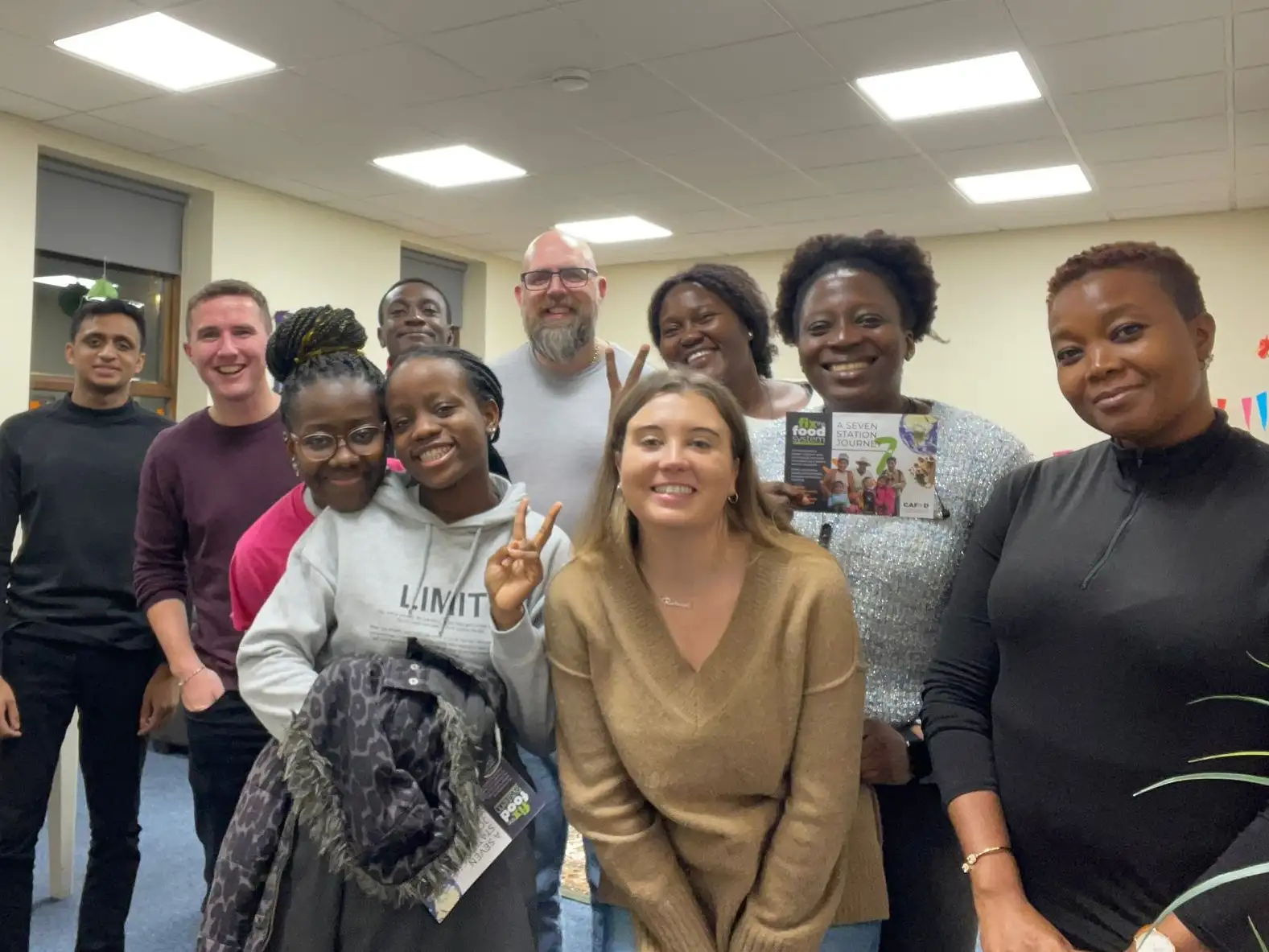

The agreement to "transition away from fossil fuels" is the first time governments have committed to move away from fossil fuels in more than thirty years of UN climate meetings.
The UN COP28 climate summit has ended with nearly 200 governments agreeing a call for the world to “transition away from fossil fuels”.
The COP28 agreement marks the first time all governments at a COP have formally acknowledged the world must move away from fossil fuels.
Pope Francis had urged world leaders to commit at COP28 to speed up a move away from fossil fuels such as coal, oil and gas, with people in countries that have contributed least to causing the climate crisis being hardest hit.
COP28 'confirms what we need to do' – but more is needed on 'how'
Neil Thorns, Director of Advocacy at CAFOD, said:
“COP28 has confirmed what we need to do with an explicit reference to a world without fossil fuels and support to the most vulnerable communities through the agreement of a loss and damage fund.
“But with little new funding, the ‘how’ this happens in a fair and rapid way to support the needs of low-income countries whose populations are suffering from the climate crisis is far from clear. It risks pushing those countries further into a debt crisis with less funding to support the poorest and most vulnerable communities."
“COP28 has confirmed what we need to do with an explicit reference to a world without fossil fuels”
“Pope Francis called for urgent action at COP28. He may be disappointed that leaders have not moved ‘beyond the mentality of appearing to be concerned but not having the courage needed to produce substantial change’, but we now have the basis to create greater ambition at our national levels. That is the way we will keep to a 1.5 degree pathway.
“It’s encouraging to see increasing government support to link the climate and food agendas, which should be reflected in future national plans and an urgent plan to transform our food system to provide greater support smallholder farmers."
What was agreed at COP28? What was achieved at the UN climate talks in UAE?
As well as acknowledging the need for the use fossil fuels to be reduced, countries at COP28 agreed to triple the amount of energy the world can generate from renewable energy sources such as solar and wind power by 2030.
Governments also built on a commitment made at COP27 in 2022 to set up a ‘Loss and Damage Fund’ by confirming how the fund would operate. More than $700m was pledged by rich countries to provide financial support to communities suffering from irreversible damage due to the climate emergency, although many more billions will be required to meet the scale of destruction.
The link between the world’s broken food system and the climate crisis was acknowledged more strongly than at previous COPs, although some decisions were postponed for future climate summits.
Countries are likely to be required to include cuts to emissions from food production in future climate targets. However, more support is needed for small-scale farmers who produce more than one-third of the world’s food but whose ways of making a living are being threatened by climate disasters.
How CAFOD campaigners called for action at COP28
Thousands of CAFOD supporters campaigned in the run-up to COP28 to call for the UK government to play its part at the climate conference.
Hundreds of Catholics took part in marches to declare they had ‘No faith in fossil fuels’, while thousands signed petitions urging Prime Minister Rishi Sunak to stick to the UK’s commitments to cut emissions to net zero and provide climate finance to communities on the frontline of the climate crisis.
More than 3,000 CAFOD campaigners wrote to MPs to share Pope Francis’s call for action at COP28.

Receive campaign news by email
When we join together as the Catholic community we have a strong voice. Sign up to receive updates and stand alongside those facing poverty and injustice around the world.

